#Hillel Halkin
Text
tag game
thanks @tomvorikandharry for tagging me <3
nickname: human google. beans.
height: 5’6” or 167.6 cm
last thing i googled: Александр Кутиков живет в Израиле сейчас? (i’m going to see Машина Времени in a few months, but i was curious to know if Kutikov had gotten duel citizenship like Makarevich).
song stuck in my head: keep it down by jack bruce (i bought a friend’s dad one of his solo vinyls for christmas, in addition to some lester young and paul desmond, but it started me back on a kick of listening to him).
amount of sleep: 6 hours. normal for me is 4-5.
dream job: when i finish my doctorate, i’ll be qualified to be a professor, or at least start on that track, and my advisor(s) and program have a great record of getting people into prestigious post-docs and tenure track positions. i may transition to another sector and work in a think tank/banking/foreign policy or diplomacy/etc. we’ll see how sick of academia i am 6 years from now.
wearing: blue jeans i bought from a little shop in soho a few years ago. grey mock neck and black blazer that i got vintage shopping in NYC last winter. lace up black combat-ish boots from Dune.
book/movie that summarizes me: weirdly enough, master and commander by patrick o’brian. not that i especially love that book, it’s definitely not my usual thing to read, but because of the character of queeney. as jack aubrey says of her:
“’Conic sections and the Pentateuch came as easy as kiss my hand to her. Dear Queeney. I thought she was to be an old maid, though she was so pretty; for how could any man make up to a girl that knows Hebrew? It seemed a sad pity: anyone so sweet-tempered should have a prodigious great family of children. But, however, here she is married to the admiral, so it all ends happy ... yet, you know, he is amazingly ancient — grey-haired, rising sixty, I dare say.’”
(every bit of that is scarily accurate, down to the hebrew (though mine is modern) and the maths).
current favorite song: is this what you wanted by leonard cohen (1974)
aesthetic: i feel like i’m aesthetically a bit of a chameleon, in that my space is decorated in a way which totally reflects my personality and interests while the way i dress is often more conservative and toned down, though it still contains elements of my fundamental style and often depends on the occasion. (for example when i was in london last week a friend kindly took me out to a very expensive jazz club and i wore a vintage black mini dress which had lace sleeves and a lace collar and a plunging lace only back cut-out with chunky tall michael kors velvet heels i bought second hand and black nylons. not at all what i would wear day to day but reflective of how and who i wanted to be in that environment). anyway, my flat is very ‘modern day scholar inhabits 16th century persianite harem.’ all jewel tones, intricate dark wood dividers, miniatures with inscriptions from rumi, patterned textiles, etc. but also loads of books, weird little presents friends have bought me, an egon schiele print, a random fortnum and mason’s basket, a kitchen fully stocked with east asian ingredients, etc.
fav author(s): this is a cruel question, but i’ll just pick a handful in no particular order. vladimir nabokov, joseph brodsky, saul bellow, evelyn waugh, jeet thayil, ma jian, salman rushdie, tom wolfe, t.s. eliot, sergei dovlatov, hayim nachman bialik, tomas transtromer, walker percy, milan kundera, italo calvino, hillel halkin, philip larkin, and so on.
random fact: my 6th (or 7th, no-one in my family can actually remember) was ancient egypt themed. at my insistence. just imagine a little girl with curly pigtails beaming next to a cake in the shape of tutankhamun’s death mask and you’ve got the idea.
tagging: @thedookieshooter and @charliesmydarling
*do not reblog*
2 notes
·
View notes
Video
youtube
Hillel Halkin: World Renowned Israel Author and Translator: October 7th
✅ Hillel Halkin: World Renowned Israel Author and Translator: October 7th 🙏🙏 Watch The Video & Don’t Forget to Like, Comment, Subscribe, & Share 🧡 💠 The Hillel Halkin is an iconic author and translator. He has translated over thirty books including one from the great Jewish writer, Shalom Aleichem. In this interview Hillel shares with us intimate stories about time spent with Israeli author, Amos Oz, while translating his book. The story takes a turn when Oz tells the publishers upon completion of Halkin's work to edit anywhere they like. It didn't sit well with Hillel and the two stopped speaking for twenty years. This interview is insight into the mind and experiences of a great Israeli literary giant. My co-host on the show, was Dr. Bradley Strauss. The two are friends. Have a listen. It's worth it. The Avrum Rosensweig Show: an inspirational podcast about fascinating people. 🔶 WATCH MORE EPISODES..................................... ✅ Rabbi Shlomo Gemara, an Agnon expert, a Torah scholar and a most colorful and fascinating teacher 👉 This Video Link: https://youtu.be/5sqkQBXSQ5Y ✅ Holocaust Survivor, Severyn Ashkenazi, Rebuilding Hollywood and Polish Jewry 👉 This Video Link: https://youtu.be/ZwUXqVqBOGI ✅ The Little Miracle of Hockey Israel & Israel's Recent Victory in Bulgaria 👉 This Video Link: https://youtu.be/DlVUnehV2KU ✅The Fascinating, Magical World of the Kuzari with Rabbi Daniel Korobkin 👉 This Video Link: https://youtu.be/vQ7MSRB95nY ................................................................... 🌟 LET'S STAY CONNECTED... 🔶 https://www.avrumrosensweig.com #AvrumRosensweigShow #QualityContent #EngagingConversations #inspiringstories #jewisheducation #jewishheritage #jewishleader #jewishlearning #motivationalpodcast #motivationalinterview #livestream #TheAvrumRosensweigShow
0 notes
Photo

¡Ay, amor mío! ¿Cuándo se convirtió nuestro amor en una jaula en la que no hacemos más que desgarrarnos una y otra vez?
Aun así, mientras sostengo este libro entre las manos, sé que no existe temple de las emociones ni cansancio del alma en los que Van Gogh no fuera capaz de penetrar al instante;
que siempre estará ahí para limpiarme los ojos y el corazón cuando estén encostrados por el hollín del tiempo.
Hillel Halkin
Art: Vincent van Gogh, Parc de l'hôpital Saint-Paul ,1889
.
12 notes
·
View notes
Text
Agnon's Tales of the Land of Israel; Edited by Jeffrey Saks, Shalom Carmy
Agnon’s Tales of the Land of Israel; Edited by Jeffrey Saks, Shalom Carmy
Foreword: Steven Fine
“As a result of the historic catastrophe in which Titus of Rome destroyed Jerusalem and Israel was exiled from its land, I was born in one of the cities of the Exile,” S. Y. Agnon declared at the 1966 Nobel Prize ceremony. “But always I regarded myself as one who was born in Jerusalem.” Agnon’s act of literary imagination fueled his creative endeavor and is explored in…
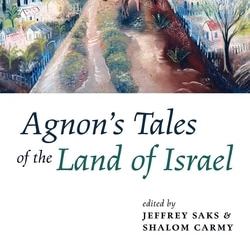
View On WordPress
#Alan Mintz#Avraham Holtz#hillel halkin#Jeffrey Sak#Laura Wiseman#Moshe Simkovich#Pickwick Publications#Shalom Carmy#Shulamith Z. Berger#Steven Fine#Steven Gine#Wendy Zierler#Zafrira Cohen Lidovsky
0 notes
Text
Learning to Listen
The Israeli-Palestinian dispute has many unique features, by which I mean qualities that it specifically does not share with similar geo-political disputes and which are features particularly of the parties to it. But there are other features that it does share with other disputes between nations or peoples, into which category I would put those aspects of the problem that are specifically not especially unique to the players involved. I suppose there are probably many different aspects to the endless sikhsukh between Arab and Jew in the Holy Land that could be included in that second category, but I think probably the most prominent of them all—and paradoxically both the most difficult to resolve and, in other ways, also the simplest—is the inability both sides show with remarkable regularity to see the people on the other side of the fence at all clearly. Or to hear them when they speak. Or to listen without prejudice to what they wish to say.
There are circles, as I am well aware, in which even the suggestion that the responsibility for the situation as it has evolved to date could or, worse, should be shared by the involved parties is anathema. I have fallen prey to that line of thinking myself. And although I find some scant comfort in the fact that I was in excellent (and famous) company in that regard, the reality of the situation no longer affords anyone who longs for peace in the region the luxury of listening only to his or her own voice. To describe those willing to listen to dissenting opinions as terminally gullible seems beyond childish at this point: it seems counterproductive and morally indefensible to imagine that peace can ever be made between people who are not prepared even formally, let alone intently, to listen to each other and to respond honestly and genuinely to what the other party has to say. It is certainly so that lots of what people say about the Middle East is nonsense, their arguments baseless blather and their positions intellectually and morally indefensible. The problem is that there’s no way to weigh the worth of other people’s opinions without listening to them carefully, and doing so generously and without prejudice. To do that, however, requires that you at least occasionally stop talking yourself. But that inability to fall silent with someone else speaks turns out, more than slightly paradoxically, to be one of the major things Israelis and Palestinians actually do have in common.
All this by way of introducing to you a very interesting book I finished reading earlier this week, Yossi Klein Halevi’s Letters to My Palestinian Neighbor. Published just last month by HarperCollins, the book is remarkable in several different ways and I would like to recommend it as serious, thoughtful summer reading for anyone who wants to understand—and on a particularly intelligent, reasonable plain—the underlying reasons that the Israeli-Palestinian dispute seems so intractable.
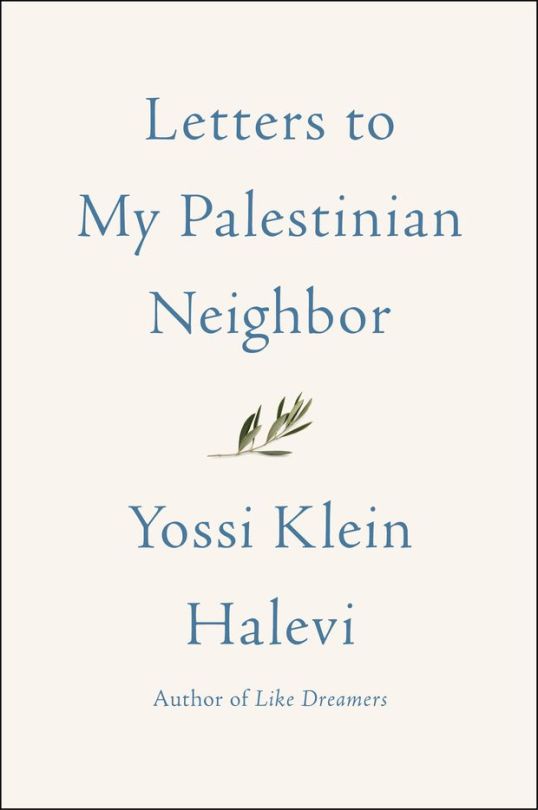
Halevi has framed his book as a series of letters to an unidentified neighbor living in Iswiya, the Arab town on the other side of the separation fence that blocks access to French Hill, the modern Israeli neighborhood adjacent to the Mount Scopus campus of the Hebrew University in which Halevi lives. For readers unfamiliar with the geography of Jerusalem, the basic principle is that, with certain famous exceptions, most Arab villages—including ones inside the municipal boundaries of Jerusalem—and the Jewish communities almost adjacent to them are sealed off from each other, if not precisely by law, then by custom: my own apartment in Arnona is not half a mile from the Arab village of Jabel Mukaber, but I’ve never been there and wouldn’t think of going there—it would be unsafe and unwise—and neither do I know anyone who has ever gone there. That’s just how it is. Yet I see Arab families all the time in the shopping malls in Talpiyot, the neighborhood directly to our west, and no one seems to notice or care. It’s all a little hard to explain, but Halevi’s idea—which I think he manages to carry through successfully—is both to notice and to care…and also to imagine that where people shop contiguously and eat at adjacent tables in restaurants, they could also speak to each other honestly and from the heart…if they felt that there was someone actually listening. A little bit, he’s tilting at windmills. But he’s also taken the remarkable step of having his entire book—this book that I’m writing to you about—translated into Arabic and posted for free download on a website that should be easily accessible to all Israeli and Palestinian Arabs.
The author writes frankly and from the heart. To the Palestinians, he offers the clear message that they are doing themselves a disservice and more or less guaranteeing that almost no Israelis will listen seriously (or even at all, really), when they speak as though the Jewish connection to the Land of Israel began in the nineteenth century and refuse on principle to take the preceding millennia into account, millennia which included centuries of Jewish autonomy in that place and of ongoing spiritual, emotional, and intellectual attachment to it. Indeed, when Palestinian leaders insist—passionately but ridiculously—that the entire Bible is a falsification of history, that there never was a Temple on the Temple Mount, that the Davidic kingdom never existed, that all the archeological evidence that ties the Jewish people to the Land of Israel is bogus and phony, they are more or less guaranteeing that no Israeli with any sense of pride in his or her nation will still be listening after the first sentence or two. But when Israelis, and particularly religious Israelis, wave away the Palestinians as mere interlopers because their ancestors only arrived on the scene a mere twelve centuries ago, they are guaranteeing no less surely that no thoughtful Palestinian born in that place and whose whole sense of identity is tied to his or her national sense of self is going to continue listening after the first few words either.
In other words, what both sides have accomplished magnificently is the discovery and honing of precisely the right kind of code words to use so as to be able to guarantee that no one will actually be listening when you finally do stand up to speak.
Halevi addresses painful, difficult topics in the course of his letters to his unidentified neighbor across the security fence. He talks openly—and passionately—about the way that terrorism has taken its toll not only on the specific individuals who have died as the result of Palestinian terror attacks, but on the national consciousness of Israelis as well. And he also writes, in my opinion remarkably openly, about the specific reasons so many Israelis do not feel themselves able to believe truly that their Palestinian neighbors wish to live in peace. Indeed, when he asks, not guilelessly but sharply and acidulously, why the Palestinians have turned down so many different offers of statehood—at Camp David and at Oslo, but also on other occasions as well—if they truly wish to negotiate a settlement and get on with the work of nation building, he is merely doing his part to hold up his end of the dialogue honestly and candidly.
One review I read suggested that the best way to read this book would be first to read an entirely different one: Hillel Halkin’s Letters to an American Jewish Friend, published in 1977 and still in print. I was in my final year at JTS when that book came out and I remember reading it and feeling both inspired by its argument, yet unjustly marginalized by its conclusions. The book angered me—which I’m sure was exactly the response the author hoped to provoke—but also challenged me to revisit my feelings about living in the diaspora and about my personal relationship to Israel. I recommend the book highly to all my readers, however: here is a truly passionate argument for aliyah that all who wish truly honestly to engage with the Zionist ideal should read.
For most, it will not be pleasant reading. But political writing at its best is not meant to soothe, but to irritate—somewhat in the way sand irritates oysters into producing pearls—and to allow readers to confront their complacency and address the logical flaws or moral sloppiness in the way they approach the philosophical or political issues that engage them the most passionately. I see that reviewer’s point and second the motion: to read those two books, one after the other, would truly to engage with the twin axes of Israel life: the x-axis of Jewishness which connects Israelis with Jews in all the lands of our dispersion, and the y-axis of rootedness in the land which ties Israelis, whether they like it or not, to the Palestinians who self-define in terms of their own rootedness in that same soil. And for those of us whose hearts beat with Israel, that kind of engagement with the grid can only produce insight into what we all understand is a very complicated situation. Anna Porter, who wrote a very intelligent review of Halevi’s book for the Toronto newspaper, The Globe and Mail (click here to read it), wraps up her appraisal by noting that “Israel is a very complicated country.” That, surely, we can all agree is true. But books like Halevi’s are attempts to shed more light than heat on the precise issues that make life in the Holy Land so complicated…and to inspire a dialogue, for once, that is rooted in reality rather than rhetoric.
Since I am not a Palestinian, I am presumably not the intended audience for a book entitled “Letters to My Palestinian Neighbor.” Nor will the large majority of people reading this be. Nonetheless, I recommend this to you all wholeheartedly as an opportunity to look out at the world, and the Middle East in particular, through Yossi Klein Halevi’s eyes. Particularly for young people eager to understand their parents’ deep commitment to Israel but unsure of where they personally stand, this book will be an eye-opening, inspiring read.
1 note
·
View note
Photo
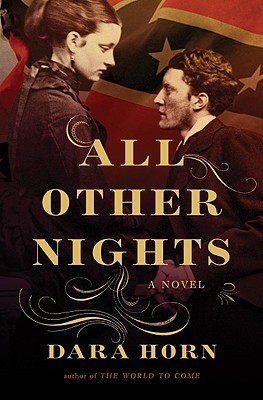
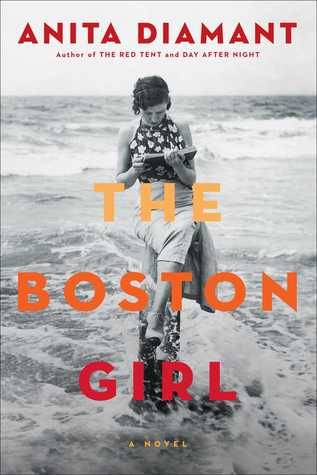
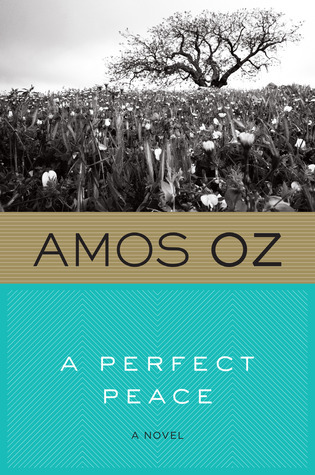
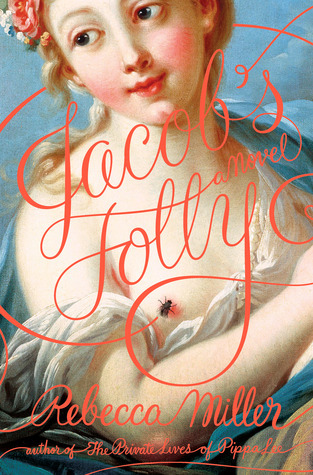
Jewish American Heritage Month: Historical Fiction
All Other Nights by Dara Horn
A gripping epic about the great moral struggles of the Civil War.
How is tonight different from all other nights? For Jacob Rappaport, a Jewish soldier in the Union army during the Civil War, it is a question his commanders have already answered for him - on Passover, 1862, he is ordered to murder his own uncle in New Orleans, who is plotting to assassinate President Lincoln. After this harrowing mission, Jacob is recruited to pursue another enemy agent, the daughter of a Virginia family friend. But this time, his assignment isn't to murder the spy but to marry her.
Based on real personalities such as Judah Benjamin, the Confederacy's Jewish secretary of state and spymaster, and on historical facts and events ranging from an African American spy network to the dramatic self-destruction of the city of Richmond, All Other Nights is a story of men and women driven to the limits of loyalty and betrayal. It is also a parable of the rift in America that lingers a century and a half later: between those who value family and tradition first, and those dedicated, at any cost, to social and racial justice for all.
The Boston Girl by Anita Diamant
Addie Baum is The Boston Girl, born in 1900 to immigrant parents who were unprepared for and suspicious of America and its effect on their three daughters. Growing up in the North End, then a teeming multicultural neighborhood, Addie's intelligence and curiosity take her to a world her parents can't imagine - a world of short skirts, movies, celebrity culture and new opportunities for women. Addie wants to finish high school and dreams of going to college. She wants a career and to find true love.
Eighty-five-year-old Addie tells the story of her life to her twenty-two-year-old granddaughter, who has asked her "How did you get to be the woman you are today?" She begins in 1915, the year she found her voice and made friends who would help shape the course of her life. From the one-room tenement apartment she shared with her parents and two sisters, to the library group for girls she joins at a neighborhood settlement house, to her first, disastrous love affair, Addie recalls her adventures with compassion for the naïve girl she was and a wicked sense of humor.
Written with the same attention to historical detail and emotional resonance that made Anita Diamant's previous novels bestsellers, The Boston Girl is a moving portrait of one woman’s complicated life in twentieth-century America, and a fascinating look at a generation of women finding their places in a changing world.
A Perfect Peace by Amos Oz, Hillel Halkin (Translator)
Israel, just before the Six-Day War. On a kibbutz, the country’s founders and their children struggle to come to terms with their land and with each other. The messianic father exults in accomplishments that had once been only dreams; the son longs to establish an identity apart from his father; the fragile young wife is out of touch with reality; and the gifted and charismatic “outsider” seethes with emotion. Through the interplay of these brilliantly realized characters, Oz evokes a drama that is chillingly, strikingly universal.
Jacob's Folly by Rebecca Miller
In eighteenth-century Paris, Jacob Cerf is a Jew, a peddler of knives, saltcellars, and snuffboxes. Despite a disastrous teenage marriage, he is determined to raise himself up in life, by whatever means he can. More than two hundred years later, Jacob is amazed to find himself reincarnated as a fly in the Long Island suburbs of twenty-first-century America, his new life twisted in ways he could never have imagined. But even the tiniest of insects can influence the turning of the world, and thanks to his arrival, the lives of a reliable volunteer fireman and a young Orthodox Jewish woman nursing a secret ambition will never be the same.
Through the unique lens of Jacob's consciousness, Rebecca Miller explores change in all its different guises-personal, spiritual, literal. The hold of the past on the present, the power of private hopes and dreams, the collision of fate and free will: Miller's world-which is our own, transfigured by her clear gaze and by her sharp, surprising wit-comes brilliantly to life in the pages of this profoundly original novel.
#Historical Fiction#Jewish Authors#jewish characters#jewish american heritage month#to read#tbr#booklr#book tumblr#library books#notable works#books to read#important books#historical
8 notes
·
View notes
Text
How will my soul get along without its body? It's used to it. It's shaped and been shaped by it. Why would it want another, even if it could have one? Nothing would fit. We wouldn't be me. [...] My soul has never wanted another body and never will.
I return to my desk and write: the absurdity of resurrection--the only hope.
Hillel Halkin, After One-Hundred-and-Twenty: Reflecting on Death, Mourning, and the Afterlife in the Jewish Tradition
#i read like three pages of this book every few months because it invariably paralyzes me with sentences like 'we wouldn't be me'#death
3 notes
·
View notes
Photo

Started #reading Grand Things to Write a Poem on: A Verse Autobiography of Shmuel Hanagid, ed. Hillel Halkin.
1 note
·
View note
Quote
Si solo tuviéramos una vida juntos, la viviría junto a ti jubilosamente, aunque me gustaría que fueran más. Si viviéramos diez vidas, o cien, seguiría queriendo más. Si tú y yo naciéramos una y otra vez, querría que naciéramos siempre siendo tú y yo, para que todas las veces pudiéramos estar juntos de nuevo. Si tras mil vidas contigo me dijeran que estaba viviendo por última vez, me sentiría timado, pero si tuviera que elegir entre vivir una vida contigo y vivir mil vidas sin ti, elegiría esa única vida, independientemente de lo corta que fuera. Lo elegiría ahora y siempre.
¡Melisande! ¿Qué son los sueños?
Hillel Halkin
6 notes
·
View notes
Text
Article: 'If Israel were destroyed, I hope it would be the end of the Jewish people.' - Sponsored Content | The Times of Israel
'If Israel were destroyed, I hope it would be the end of the Jewish people.' - Sponsored Content | The Times of Israel
0 notes
Text
“It was summertime; the sun was shining down; the flies were biting; and the whole world seemed such a delicious place that it made you want to sprout wings and fly off into it...”
- Tevye the Dairyman by Sholem Aleichem, trans. by Hillel Halkin
2 notes
·
View notes
Text
Descarga ¡Melisande! ¿Qué son los sueños? (Hillel Halkin)
5 / 5 ( 1 voto ) A finales de los años cincuenta, en Nueva York, dos chicos: Hoo y Ricky, y una chica, Mellie, se conocen mientras trabajan en la redacción de la revista literaria de su instituto. Allí forjarán una amistad que durará años y condicionará el resto de sus vidas… Categoría: Infantil […]
#libros #frases #amor #books #literatura #bookstagram #a #poesia #leer #book #love #libro #escritos #pensamientos #n #letras #lectura #poemas #ol #versos #vida #textos #librosrecomendados #reflexiones #frasesdeamor #sad #poema #os #accionpoetica #bhfyp
source https://www.descargalibros.es/descarga-melisande-que-son-los-suenos-hillel-halkin
0 notes
Text
"The Persistence of the Oldest Hatred" by BY HILLEL HALKIN via NYT https://t.co/MAHIxOqFrf https://t.co/z8hkIinJTE
"The Persistence of the Oldest Hatred" by BY HILLEL HALKIN via NYT https://t.co/MAHIxOqFrf pic.twitter.com/z8hkIinJTE
— Alejandro Ruiz (@alejandroruizcr) September 10, 2019
from Twitter https://twitter.com/alejandroruizcr
September 10, 2019 at 11:03AM
via IFTTT
0 notes
Photo

After One-Hundred-and-Twenty: Reflecting on Death, Mourning, and the Afterlife in the Jewish Tradition
Hillel Halkin
BM635.4 .H35 2016
0 notes
Text
After One-Hundred-and-Twenty - Forthcoming (May 2016)
“Hillel Halkin is an uncommon and essential figure in Jewish intellectual life―a man at home in the entirety of the tradition and its languages, a secularist fascinated by religion, a scholar in the thick of the world, a critic with an insatiable appetite for exploration. This lively, even scintillating book about the passing of life generously displays all of Halkin's virtues. It will enlighten its mortal readers, and even help them.”―Leon Wieseltier
“A most remarkable and beautifully written book. Halkin elegantly weaves together illuminating scholarly examinations of various Jewish ideas about death, mourning, and the afterlife with his own wonderfully honest, humane, and deeply moving personal reflections on these subjects and on his own mortality.”―Leon R. Kass

After One-Hundred-and-Twenty provides a richly nuanced and deeply personal look at Jewish attitudes and practices regarding death, mourning, and the afterlife as they have existed and evolved from biblical times to today. Taking its title from the Hebrew and Yiddish blessing to live to a ripe old age―Moses is said to have been 120 years old when he died―the book explores how the Bible's original reticence about an afterlife gave way to views about personal judgment and reward after death, the resurrection of the body, and even reincarnation. It examines Talmudic perspectives on grief, burial, and the afterlife, shows how Jewish approaches to death changed in the Middle Ages with thinkers like Maimonides and in the mystical writings of the Zohar, and delves into such things as the origins of the custom of reciting Kaddish for the deceased and beliefs about encountering the dead in visions and dreams.
After One-Hundred-and-Twenty is also Hillel Halkin's eloquent and disarmingly candid reflection on his own mortality, the deaths of those he has known and loved, and the comfort he has and has not derived from Jewish tradition.
Hillel Halkin is an author, translator, critic, and journalist. His books include Jabotinsky: A Life and Yehuda Halevi, which won the National Jewish Book Award.
Forthcoming May 2016
0 notes
Quote
There’s been nothing like it in human history. A small and ancient people loses its land and forgets how to speak its language; wanders defenselessly for hundreds, thousands, of years throughout the world with its God and its sacred books; meets with contumely, persecution, violence, dispossession, banishment, mass murder; refuses to give up; refuses to surrender its faith; continues to believe that it will one day be restored to the land it lost; manages in the end, by dint of its own efforts, against all odds, to gather itself from the four corners of the earth and return to that land; learns again to speak the language of its old books; learns again to bear arms and defend itself; wrests its new-old home from the people who had replaced it; entrenches itself; builds; fructifies; fortifies; repulses the enemies surrounding it; grows and prospers in the face of all threats.
Hillel Halkin, Letters to an American Jewish Friend, 1977.
0 notes